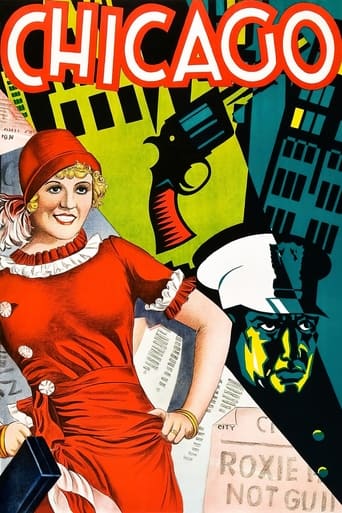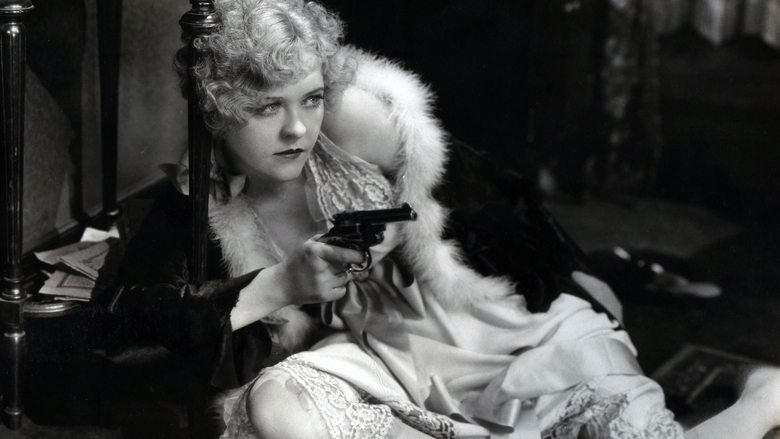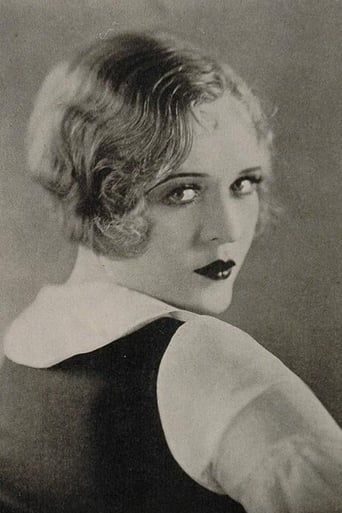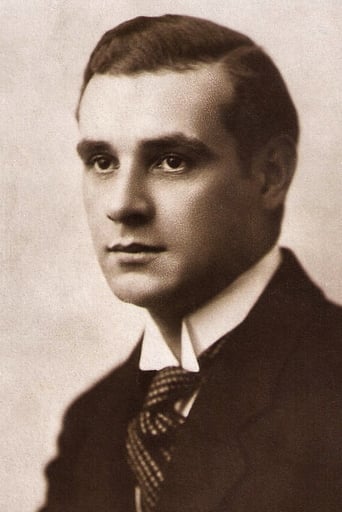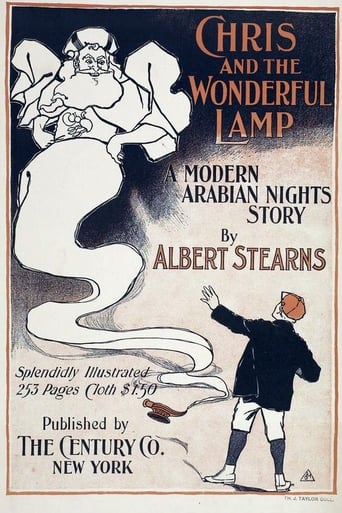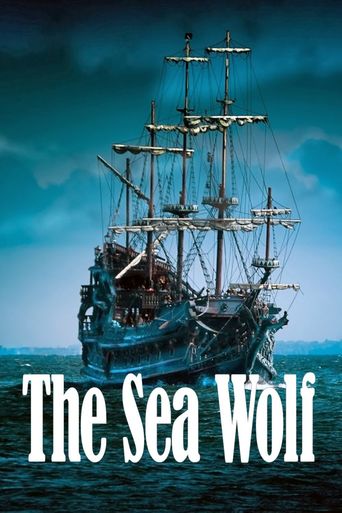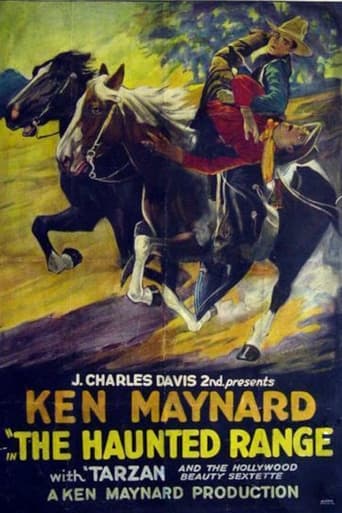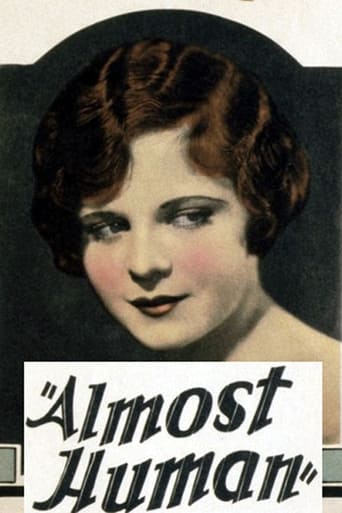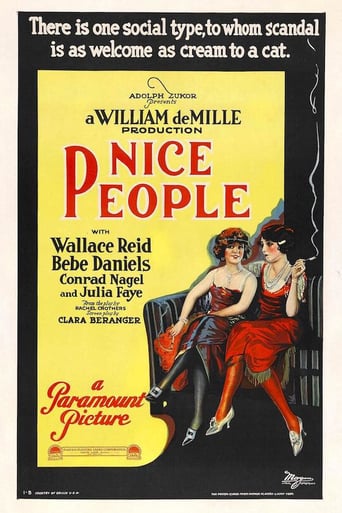Chicago (1927)
Based on a true story, two-timing boozing wife Roxie Hart kills her lover in cold blood after he leaves her, and finagles her way out being indicted. The basis for Kander/Ebb's 1975 Broadway musical of the same name and its Oscar-winning 2002 film adaptation.
Watch Trailer
Free Trial Channels
Cast


Similar titles
Reviews
When a movie has you begging for it to end not even half way through it's pure crap. We've all seen this movie and this characters millions of times, nothing new in it. Don't waste your time.
It isn't all that great, actually. Really cheesy and very predicable of how certain scenes are gonna turn play out. However, I guess that's the charm of it all, because I would consider this one of my guilty pleasures.
Go in cold, and you're likely to emerge with your blood boiling. This has to be seen to be believed.
The movie is wonderful and true, an act of love in all its contradictions and complexity
CHICAGO (1927) is the story of Roxie Hart (Phyllis Haver), a bored young housewife who kills her lover during an argument. She convinces her doting husband Amos (Victor Varconi) that she killed the man in self- defense. Amos goes to great lengths to save her from the noose, hiring oily lawyer William Flynn (Robert Edeson). Meanwhile, a slick reporter (T Roy Barnes) plays up her beauty and "innocence", making her into a nationwide celebrity. Direction is credited to Frank Urson, but in actuality Cecil B DeMille directed the majority of the film.CHICAGO is an adaptation of a play by author Maurine Watkins, which was inspired by Watkins' own articles about the trial of real-life murderess Beulah Annan. The film is tight and well crafted. In particular, it's a sharp and merciless satire on unearned celebrity, societal double standards, and the hedonistic 1920s lifestyle. There are many laugh-out- loud hilarious scenes, including a scene where Flynn coaches Roxie on how to appear during his closing statement to the jury, and a scene of the photographer posing Roxie shortly after the murder takes place. Many scenes use exaggeration to make points about media sensationalism and lawyers' appeals to emotion, rather than truth, in order to exonerate their guilty clients. The humor is balanced by the dramatic portrayal of Amos' efforts to save his undeserving wife from the noose. Amos is the moral center of the movie, a decent man who is so in love with his wife that he is willing to break the law to save her, yet struggles with her murderous deed and self-centered, callous attitude.The acting in CHICAGO is nothing less than excellent. Phyllis Haver makes a great lead, portraying the many facets of Roxie Hart's character skillfully. She shows equal comedic and dramatic ability. One could argue that Roxie is a sociopath, able to turn on the charm and the waterworks at will in order to get her way, but fundamentally lacking a conscience. Haver's portrayal of Roxie is perfect. I had never heard of Victor Varconi before, but he played Amos with great skill, sensitivity and restraint, turning in a very believable performance. The rest of the cast does fine work as well.Visually, CHICAGO is top-notch, with skillful editing, fluid camera work, and meaningful use of visual cues. One instance of this is a shot of a crowd walking heedlessly on a newspaper with Roxie on the front page once her 15 minutes of fame are up. The visual style of the film points the way forward to the classic Hollywood style of the 1930s and 40s. This film came out the same year as landmark movies like SUNRISE, WINGS, and METROPOLIS, and even though it is not as celebrated as those visual marvels, in its way it's just as accomplished.SUMMARY: CHICAGO is a skillful blend of satire and drama that boasts a razor-sharp script, excellent performances, and highly accomplished direction. The message of the movie has just as much resonance now as it did in its time. A classic! SCORE: 10/10.
In 1924 all America was gripped by the Chicago trial of Beulah Anann for a "crime of passion' - murdering her lover, Harry Kalstedt, then apparently playing "Hula Lou" on the phonograph for about 4 hours before she decided to tell anyone about it. A couple of years later it was turned into a movie and gave Phyllis Haver, formally known as a supporting comedienne, the role of her life. The film was based on the hit play "Chicago" of the year before, Beulah became Roxie Hart and it opened out the play considerably, with some additions based on the original murder and some concocted by Hollywood screenwriters. Completely remastered and with a hummable musical score this may have been Pathe's most prestigious film - all about "a little girl who was all wrong in the big city"!! Amos Hart (Victor Varconi) is just besotted with his flapper wife Roxie who yearns only for wealth, only maid of all work, Katie, appreciates Amos's kindness. Roxie has a "sugar daddy" (Eugene Palette) who desperately wants to give Roxie the air but she cuts him off first - shooting him through the door. Disillusioned Amos sizes up the situation but still takes the blame for the murder - however the D.A. is convinced Roxie is guilty as hell!! With the help of a publicity chasing news hound (T. Roy Barnes) who builds her up as "Chicago's Most Beautiful Murderess" and convinces her that in a few days women will be naming their babies after her - the celebrity of Roxie Hart kicks in!!There is a hilarious fight in the woman's prison between Roxie and "Black Narcissus" with cries of "Peroxide" and "false hair!!" and they all get entangled in the prison gym equipment with May Robson acting as referee. Kind hearted Amos has to find the money to pay for the top lawyer he wants to hire and in desperation robs the lawyer but soon realises that the money is the proceeds from a recent bank robbery. The lawyer earns his money but it is an uphill battle - "when I say virtuous look as though you know what virtuous means"!!! Roxie is found not guilty in a very funny performance in which she has the all male jury eating out of her hand and looks set to bask in her notoriety for a long time to come but when "Two Gun Rosie" slays her lover in court Roxie realises that celebrity is fickle and as disposable as yesterday's newspaper. (I thought I saw pretty Sally Eilers as one of the goggle eyed flappers in the courtroom scene). The movie finishes on a depressing note for Roxie who, even though cleared of murder, by Hollywood standards was not allowed to get off scot free for her crimes. Even Amos is left pondering what might have been at the movie's ambiguous ending.Reviewers praised Haver to the skies for her performance - "astoundingly fine" and "makes this comedy most entertaining". She then appeared in D.W. Griffith's "The Battle of the Sexes" and a minor Lon Chaney movie "Thunder" but then it was all over for her. In 1929 she married a millionaire, William Seeman, and cited "an Act of God" clause to get out of her contract. "A millionaire wants to marry me and if that ain't an "Act of God" I don't know what is"!!!
Chicago (1927)*** (out of 4) The first screen adaptation of the Broadway hit has Phyllis Haver playing Roxie Hart, a morally questionable young woman who murders her lover (Eugene Palette) in cold blood when he says he's leaving her. Her husband (Victor Varconi) must try and raise money to hire a lawyer (Robert Edeson) but even he is quite crooked and things don't get any easier once the trial becomes a media sensation. CHICAGO was turned into an Oscar-winning musical in 2002 and Ginger Rogers played the role in a 1944 film (ROXIE HART) but this silent version has been pretty difficult to see up until a few years ago when UCLA restored it. There was a lot of hype going into this movie because so many people have talked it up to be something terrific and while it really didn't reach that level, it's still a pretty entertaining little movie. Frank Urson does a nice job directing the film and I really enjoyed that free-spirited, Jazz-like feeling he brings to the movie. There are some very strong moments including the opening murder sequence, which I've read was extended here compared to what was on the stage at the time. The way the murder scene breaks down was quite interesting visually and the way they show the murder was pretty ambitious. Another terrific sequence happens when Roxie enters the jail and is introduced to the various characters in there. May Robson plays one of the women and does a nice job but the cat-fight that breaks out between Roxie and another woman was very well done and quite a lot of fun. Then, there's some nice drama as the husband is forced to do some crooked things just to protect the wife who was cheating on him. The entire cast does a nice job but there's no doubt that the picture belongs to Haver. She's perfect as the freewheeling girl and I really loved the breezy nature she brought to the character. I thought the way she just floated on screen really brought the character to life and just look at the way she brings out that flirtatious nature. Edeson is just fine as the crooked lawyer and Varconi really stands out as the husband. Palette would become a very well-known character actor and it was a lot of fun seeing him in this early bit. CHICAGO does have a few problems with one of them being that it runs a tad bit too long. I think a few of the scenes just run on and on and a little bit of editing would have helped. Producer Cecil B. DeMille's stamp is all over the picture but at the same time I can't help but wonder what he might have done with the subject matter.
Yes, the 1927 silent film 'Chicago' is the same story that became the big-budget Oscar-winning musical of 2002. (There was a remake in between, 'Roxie Hart': starring Ginger Rogers.) Apart from the obvious difference that one 'Chicago' is silent and the other is a musical, both films tell exactly the same story. The major difference is that murderess Velma is a minor character in the silent version. Also, in the silent version, Roxie's husband is presented more sympathetically rather than as a fall guy.When I saw the 2002 'Chicago', set in the Jazz Age 1920s, I was annoyed by a couple of musical numbers in which the dancers were wearing blatantly modern disco-era outfits, which would never have been tolerated in 1927. Yet, ironically, the 2002 'Chicago' does a much better job than the 1927 original in evoking the 1920s period settings. The silent-film 'Chicago' is conceived as a MODERN story, set in the jazz-baby present day, and so it makes little effort to evoke its own period. Much of this movie takes place in cramped studio sets which are supposed to be dingy walk-up flats or courtrooms, but which fail to convince.If you've seen the recent 'Chicago', then you already know the plot of this 1927 movie, including all the surprises and plot twists. During Roxie's trial for homicide, the prosecutor (Warner Richmond) has a larger and more sympathetic role than in the musical remake. Fans of Eugene Pallette will be impressed with him here, but disappointed by how little he has to do. Phyllis Haver is excellent in the lead role, and sexier than Rene Zellweger. (Though not nearly as sexy as Catherine Zeta-Jones.)This 'Chicago' was produced in 1927, the first year of the Academy Awards. I wonder what the people connected with this movie would have thought if someone had told them that this story would win the Oscar for Best Picture... but not until 75 years later.I'm a silent-film fan. When a silent film is remade as a talkie, I often enjoy the silent version much more than the remake. In this case, I don't. I'll rate the 2002 'Chicago' 10 out of 10, very much deserving its Academy Award for Best Picture. I'll rate this 1927 'Chicago' only 5 out of 10. I recommend it as a curiosity, but it inevitably suffers in comparison with the musical version. Quite apart from all those razzle-dazzle dance numbers, the 2002 version actually told the STORY better.

